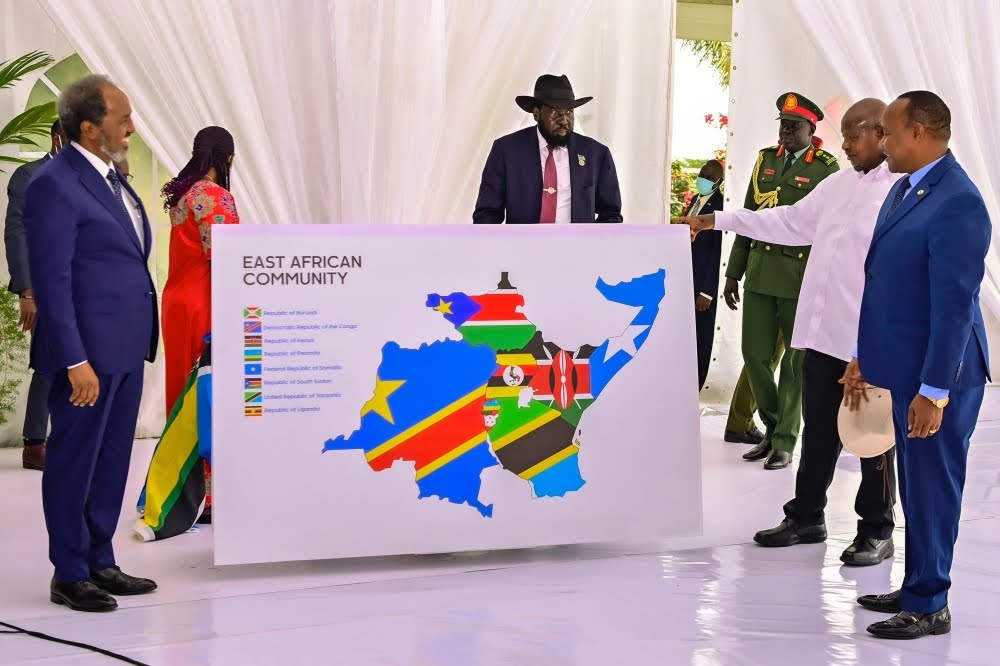A growing sense of uncertainty and concern has gripped Somali traders in Tanzania, particularly in the famous Kariakoo Market, in the capital, Dar es Salaam — the commercial hub for many members of the Somali business community. Sadly, the Somali traders in are currently facing legal and economic hardship, anxiously awaiting their government to take a clear and firm stand to defend their rights under the EAC framework.
This follows the recent introduction of a new law by the Tanzanian government, which formally prohibits non-citizens from engaging in a wide range of small-scale businesses.
The law, officially titled the Business Licensing (Prohibition of Business Activities for Non‑Citizens) Order, 2025, bans non-Tanzanians from operating 15 specific types of small businesses including small retail shops, Beauty salons, mobile money services, electronics repair shops, tour guiding, and related services and several other small-scale enterprises. Violators of the law face penalties of up to 10 million Tanzanian shillings (approximately USD 4,000), and/or up to six months imprisonment.
Impact on the Somali Business Community
The Somali traders, many of whom have long relied on small-scale businesses which have since been listed as prohibited, are now facing severe economic strain, legal uncertainty, and confusion about their future in the country. The impact has been particularly harsh on lower-income Somalis working in informal sectors, especially those in Kariakoo Market.
Wholesale and retail trade (except supermarkets, specialty stores, and wholesale centers of local manufacturers), Mobile money transfer, Brokerage or agency in business and real estate, Clearing and forwarding services, Direct purchase of crops from farms, Ownership and operation of small and medium-sized industries.
Deafening silence of Somali Government officials
Despite Somalia becoming a full member of the East African Community (EAC) in March 2024, the Somali government has yet to issue an official statement regarding the matter. Both the Minister of Foreign Affairs and the Minister of Trade have so far remained silent on the new regulation that directly affects the industrious Somali nationals.
Notably, in April 2025, the Somali government established the National Committee on Non-Tariff Barriers (NTBs) to address trade challenges faced by Somali entrepreneurs operating within EAC member states. However, this committee has yet to issue a response or take any public action on the Tanzanian directive.
Similarly, the Somali Embassy in Dar es Salaam, which recently launched new Embassy in the country in a highly attended event, has not released any formal communication on the matter, despite maintaining regular contact with the Somali business community in the city. As of now, there is no clear indication of the embassy’s stance or its plans to assist affected traders. This official silence has been interpreted by many as a sign of the disconnect between the federal government and the Somali diaspora engaged in business across the region — particularly in Tanzania.
Reactions from Other EAC Member States
In contrast, Kenya — also a member of the EAC — has reacted swiftly and critically to the Tanzanian law. Kenya’s Cabinet Secretary in charge of Investments, Trade, and Industry, Lee Kinyanjui, and Caroline Karugu, a senior official from Kenya’s Ministry of Trade in charge of EAC affairs, stated that the law directly violates the EAC’s Common Market Protocol, specifically Article 13, which prohibits discrimination against nationals of partner states engaging in cross-border trade. “This is a blatant breach of the freedoms of movement and trade guaranteed under the EAC framework. It is unacceptable,” Karugu asserted. Kenya has even warned of possible retaliatory measures if Tanzania does not reconsider its decision.
Other EAC member states, including Rwanda, Uganda, and Burundi, have not yet issued any formal response, highlighting the divergent perspectives within the regional bloc. However Somali traders have long established a reputation in Tanzania for being very trustworthy, industrious, risk-taking and aggressive investors unlike Rwanda, Burundi and Uganda.
A Critical Test for the EAC and Somalia’s Membership
Tanzania’s new law represents a serious challenge to the integrity of the EAC’s commitment to free trade and regional integration. While Somalia’s membership in the bloc was seen as a vital opportunity to bolster its economic ties within the region, the Somali government’s lack of action now underscores an urgent need for legal preparedness and diplomatic engagement.


